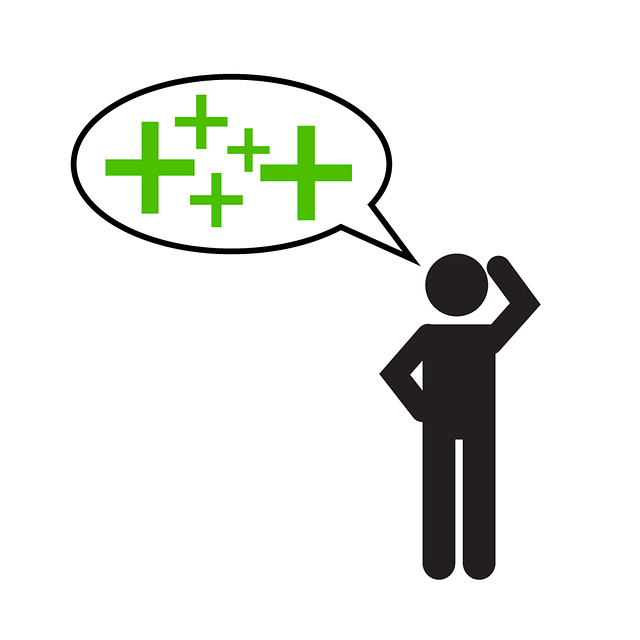CBT therapy (Cognitive Behavioral Therapy) is a powerful, structured approach to treating various mental health conditions by addressing negative thought patterns. It equips individuals with skills for emotional and behavioral management, challenging unhelpful thoughts, and adopting more realistic perspectives. Through techniques like cognitive restructuring, mindfulness, and behavior modification, CBT fosters self-awareness and empowers clients to take control of their mental well-being, offering both short-term relief and long-lasting coping strategies. While highly effective for common disorders, it may not suit complex cases and research continues to explore its applications and accessibility through technology and cultural adaptations.
“Skills-focused behavioral therapy (CBT) is a powerful therapeutic approach that equips individuals with practical skills for managing mental health challenges. This comprehensive guide explores the core principles, techniques, and applications of CBT, offering insights into its effectiveness. From identifying negative thought patterns to integrating mindfulness, this article delves into the essential tools and strategies within CBT.
By understanding these concepts, you’ll gain a clearer view of how CBT can facilitate positive change, enhance well-being, and contribute to a more balanced life.”
Understanding CBT Therapy: A Comprehensive Overview

CBT therapy, or Cognitive Behavioral Therapy, is a highly effective form of psychological treatment that focuses on identifying and changing negative thinking patterns and behaviors. It’s a collaborative process between a therapist and client aimed at helping individuals manage various mental health conditions and improve their overall well-being. By understanding the connection between thoughts, feelings, and actions, CBT enables people to challenge and replace unhelpful thought processes with more realistic and positive ones.
This therapy type is particularly useful for conditions like anxiety, depression, post-traumatic stress disorder (PTSD), and eating disorders. Through structured sessions, clients learn coping strategies, problem-solving skills, and ways to reframe negative perspectives. The goal is to empower individuals to take control of their lives, make positive changes, and develop resilience in the face of challenges. CBT has gained widespread recognition for its scientific basis, proven effectiveness, and ability to equip people with lifelong tools for mental health maintenance.
The Core Principles of Skills-Focused Behavioral Therapy

Skills-focused behavioral therapy, a modern twist on Cognitive Behavioral Therapy (CBT), emphasizes teaching clients practical skills to manage their thoughts, emotions, and behaviors. This therapeutic approach is built on several core principles designed to empower individuals with effective coping mechanisms. Firstly, it recognizes that many psychological issues stem from maladaptive learning patterns and ineffective skill sets. By identifying these patterns, therapists help clients unlearn negative behaviors and replace them with positive, healthier alternatives.
The therapy focuses on the present and future, aiming to equip individuals with skills they can immediately apply in their daily lives. This practical orientation ensures that clients leave therapy equipped with actionable strategies for overcoming challenges. Through structured learning, role-playing, and real-life practice, therapists guide clients towards becoming more self-aware and competent in managing various aspects of their mental health.
Identifying and Challenging Negative Thought Patterns

Identifying and challenging negative thought patterns is a core component of Cognitive Behavioral Therapy (CBT) aimed at transforming one’s mindset and behaviors. This process begins by becoming aware of automatic negative thoughts that often arise unchallenged, contributing to feelings of anxiety, depression, or other mental health struggles. By paying attention to these thoughts, individuals can start to recognize recurring themes and patterns that are distorted or irrational.
CBT encourages individuals to question and evaluate these negative thought patterns critically. Therapists help clients learn to identify cognitive distortions such as all-or-nothing thinking, catastrophizing, or jumping to conclusions. Once identified, these thoughts are actively challenged using evidence-based techniques, like logical analysis, alternative interpretations, and behavioral experiments. This process empowers individuals to replace unhelpful with more realistic and balanced thoughts, fostering a more positive and adaptive mindset.
Cognitive Restructuring Techniques in CBT

Cognitive Restructuring is a cornerstone technique within CBT therapy, designed to help individuals identify and challenge negative or distorted thinking patterns. By examining evidence and considering alternative perspectives, patients can learn to reframe their thoughts in a more balanced and realistic way. This process involves recognizing unhelpful cognitions—such as all-or-nothing thinking, catastrophizing, or overgeneralization—and replacing them with more adaptive beliefs.
Through structured dialogue and practical exercises, therapists guide clients to question the validity of these automatic negative thoughts. This technique empowers individuals to develop healthier coping strategies, improve mood, and enhance overall well-being. By focusing on changing thought patterns, CBT therapy offers a powerful tool for managing mental health conditions and promoting positive behavioral changes.
Behavior Modification Strategies for Positive Change

Behavior Modification Strategies for Positive Change in Skills-focused CBT Therapy
Skills-focused behavioral therapy leverages behavior modification strategies to help individuals acquire and enhance skills that promote positive change. Central to this approach is Cognitive Behavioral Therapy (CBT), which identifies and challenges negative thought patterns, thereby modifying behaviors associated with them. By teaching practical coping mechanisms, problem-solving strategies, and emotional regulation techniques, CBT empowers individuals to manage their responses to stressful situations more effectively.
One key strategy in skills-focused CBT is reinforcement, where positive behaviors are encouraged through rewards or praise. This not only strengthens the desired behavior but also fosters a sense of accomplishment and motivation. Additionally, exposure therapy is used to help individuals confront fears or anxiety-provoking situations gradually, thereby reducing avoidance behaviors and increasing confidence. Through these evidence-based methods, behavioral therapy facilitates lasting shifts in both thinking and acting, contributing to improved mental health and overall well-being.
Mindfulness and Acceptance in CBT Practice

Mindfulness and acceptance are integral components of Cognitive Behavioral Therapy (CBT), offering powerful tools to help individuals manage their thoughts, emotions, and behaviors. CBT therapy encourages patients to become aware of their mental processes, recognizing that their interpretations and reactions can significantly impact overall well-being. By fostering mindfulness, clients learn to observe their experiences without judgment, accepting both positive and negative thoughts as they are, rather than trying to suppress or avoid them.
This acceptance-based approach enables individuals to develop a healthier relationship with their thoughts, reducing the power they hold over one’s mood and actions. It empowers people to respond to challenging situations more adaptively, promoting emotional regulation and enhancing overall mental resilience. Through mindfulness practices, CBT therapy guides individuals toward making conscious choices, leading to lasting behavioral changes.
Common Applications of CBT Therapy

CBT therapy, or Cognitive Behavioral Therapy, is a versatile treatment approach with numerous applications across various mental health domains. It is commonly used to address a wide range of psychological disorders, such as anxiety, depression, post-traumatic stress disorder (PTSD), and eating disorders. The therapy focuses on identifying and modifying negative thought patterns and behaviors that contribute to these conditions.
One of the key strengths of CBT lies in its ability to equip individuals with valuable coping strategies. By teaching patients to challenge and replace distorted thinking with more realistic and positive thoughts, CBT empowers them to manage their symptoms effectively. This evidence-based therapy is often used as a short-term intervention, offering quick relief from distress while also providing long-lasting skills for maintaining mental well-being.
Integrating CBT with Other Therapeutic Approaches

In many therapeutic settings, Integrating Cognitive Behavioral Therapy (CBT) with other approaches has proven to be a powerful strategy for treating a wide range of mental health concerns. CBT is a highly effective technique that focuses on identifying and changing negative thought patterns and behaviors. However, combining it with other therapeutic modalities allows for a more holistic and personalized treatment plan. For example, integrating CBT with mindfulness-based practices can enhance the patient’s ability to regulate emotions and stay present, while adding elements of acceptance and commitment therapy (ACT) can foster flexibility in thinking and committed action towards valued goals.
This integration offers several benefits. It allows therapists to address multiple aspects of a client’s well-being simultaneously, leading to more comprehensive and lasting results. By combining the cognitive restructuring of CBT with the mindfulness focus on present-moment experience, clients gain valuable tools for managing symptoms and preventing relapse. This approach also promotes self-awareness and empowers individuals to take an active role in their healing process, making therapy a more engaging and effective journey.
Benefits, Limitations, and Future Directions of Skills-Focused Behavioral Therapy

Skills-focused behavioral therapy, a variant of cognitive behavioural therapy (CBT), offers numerous benefits for individuals seeking to improve their mental health and well-being. One of its key strengths lies in its structured approach, which teaches clients specific skills to manage symptoms, problem-solve, and adapt their behaviour. This active involvement empowers individuals to take control of their lives and make lasting changes. Moreover, CBT therapy is highly effective for a range of common mental health disorders, such as anxiety, depression, and post-traumatic stress disorder (PTSD), helping clients reduce symptoms and improve overall functioning.
Despite its proven efficacy, skills-focused behavioral therapy has limitations. It may not be suitable for everyone, especially those with more complex or severe psychiatric conditions that require medication or other specialized treatments. Additionally, while CBT is often brief and focused on specific goals, it might not delve into the deeper underlying causes of distress. Furthermore, successful implementation requires a skilled therapist who can adapt the approach to meet individual needs. Looking ahead, research suggests promising future directions, including integrating technology for remote therapy, exploring cultural adaptations for diverse populations, and investigating long-term maintenance strategies to ensure sustained benefits.
